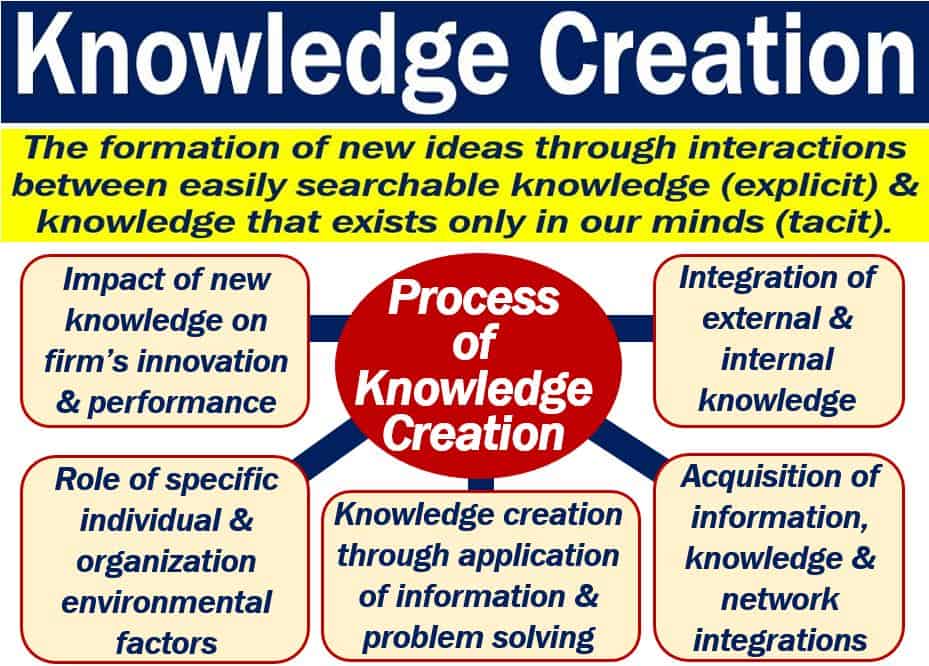Knowledge creation refers to the continuous combination, transfer, and conversion of different kinds of knowledge. This occurs as users interact, practice and learn. Put simply; it is the creation of ideas, which is at the heart of a company’s competitive advantage.
Competitive advantage is what a company has when it has the edge over its rivals. Specifically, when it has the edge regarding the provision of a certain product or service.
Knowledge creation is the formation of new notions and concepts. This occurs through interactions between explicit and tacit knowledge in people’s minds.
Explicit knowledge is information that is searchable and easy to find. Users can collaborate regarding the value and use of this type of explicit knowledge.
Tacit knowledge, on the other hand, exists in people’s minds. It is not searchable like explicit knowledge is. It is also not easy to share with another person orally or in writing.
In an article titled ‘A Dynamic Theory of Organizational Knowledge Creation,’ Ikujiro Nonaka wrote the following regarding knowledge creation:
“Although ideas are formed in the minds of individuals, interaction between individuals typically plays a critical role in developing these ideas.”
“That is to say, ‘communities of interaction’ contribute to the amplification and development of new knowledge.”
Professor Nonaka is famous globally for his study of knowledge management. He is Professor Emeritus at the Graduate School of International Corporate Strategy, Hitotsubashi University, Tokyo, Japan.

The advanced economies today are becoming knowledge economies, where the creation and marketing of knowledge are king.
Knowledge creation management
Knowledge creation management is the process of sharing, creating, using, and managing an organization’s knowledge and information. It is a multidisciplinary approach to making the best use of knowledge or information.
It is a large and popular field. In fact, many large corporations, non-profit organizations, and public institutions dedicate resources to knowledge management.
The management of knowledge is often a part of companies’ business strategies, human resource management, or IT departments. IT stands for Information Technology (computer science).
Many consulting firms provide advice regarding the creation of knowledge and its management.
Knowledge creation management efforts usually focus on company objectives such as innovation, R&D, and greater productivity. It also focuses on competitive advantage, integration, the sharing of lessons learned, and the ongoing improvement of the business.
Often, these efforts overlap with organizational learning.
Video – taxes and knowledge creation
Did you know that the authorities can design our tax system to boost the creation of knowledge?
In this EU Taxation and Customs Union video, experts talk about how the tax system can promote, for example, research and development.
